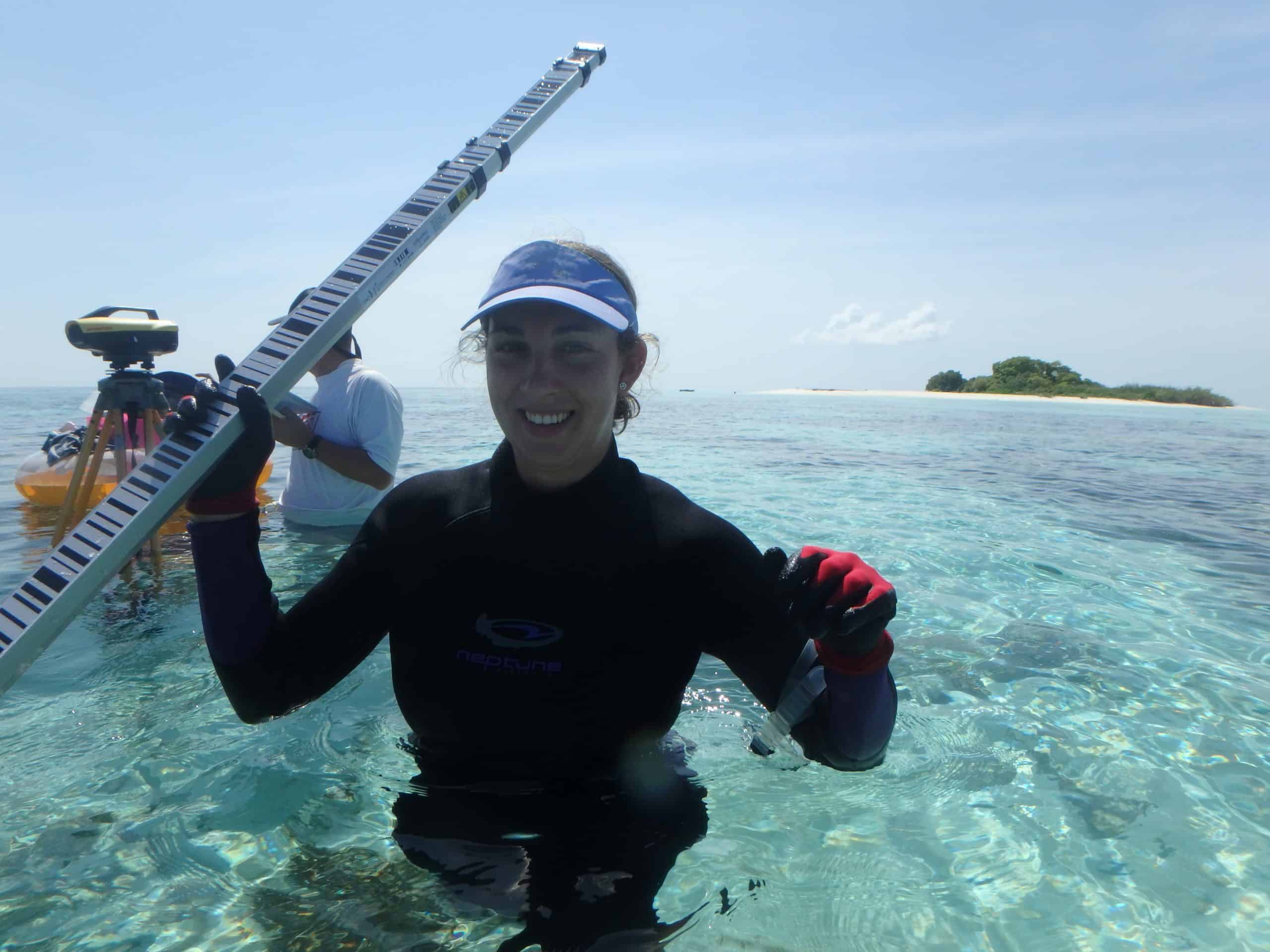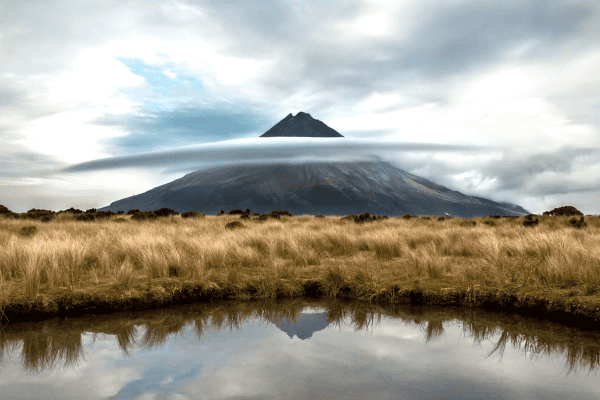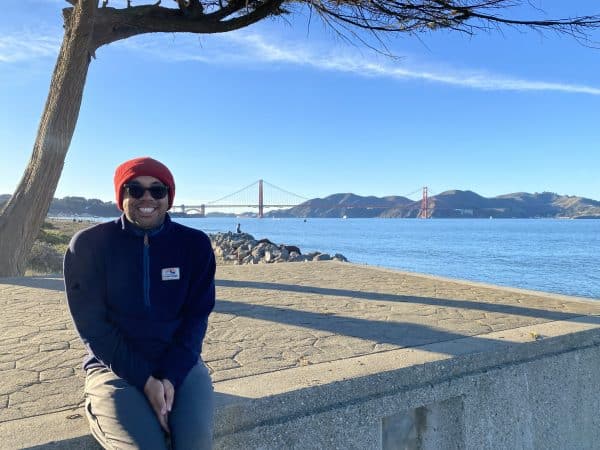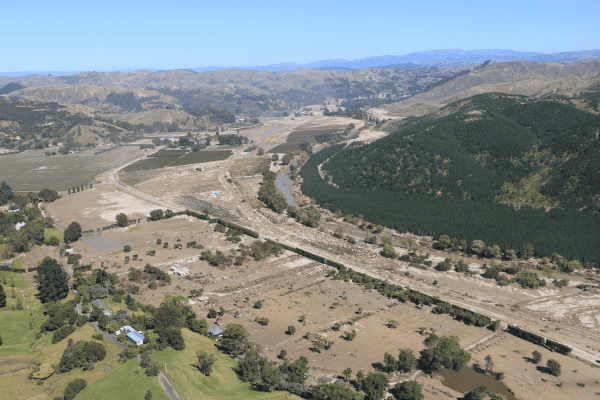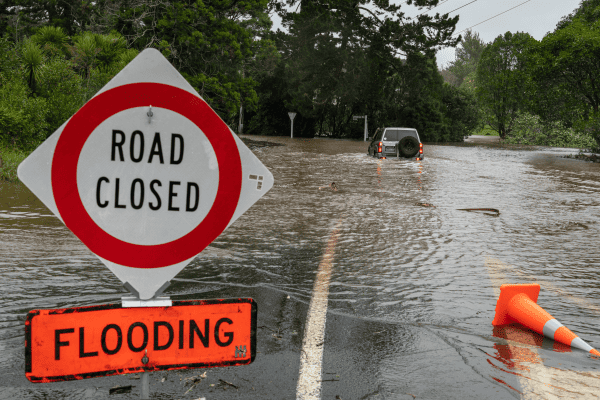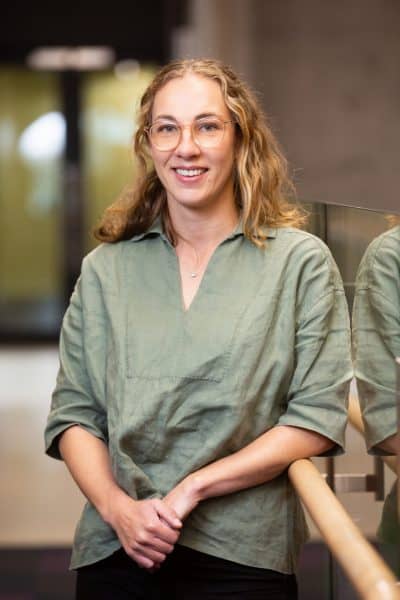
Q. Kia ora Emma. Can you tell us how you got into coastal science?
Kia ora! When I started university I enrolled in Psychology, but took a couple of Geography papers and realised I was much more interested in understanding the environment. I transferred to a Geography and Marine Science degree, and was drawn to focus on coastal science because I was fascinated with understanding how our coasts work and loved the field work aspect.
Q. What did you focus on for your PhD research?
I did my PhD at James Cook University in sunny Townsville, Australia. I studied four coral reefs within the Great Barrier Reef Marine Park that were exposed to varying levels of natural and anthropogenic stressors (such as sedimentation, cyclones). I used reef cores to reconstruct how those reefs grew and developed over the last 7000 years and how they responded to past environmental changes and stressors. That provided context for understanding the reefs’ present condition.
Q. Congratulations on your recent appointment to co-leader of the Resilience Challenge Coastal programme. What does the role mean for you?
Thank you! It’s a huge honour and I’m proud to be part of the Resilience Challenge team. I’ve been involved in the Resilience Challenge Coastal programme since 2016 when I started as a Research Assistant. I then worked as a Postdoc for several years within the Coastal programme, before being appointed co-leader. I’ve gained invaluable skills and learned so much from my Resilience Challenge colleagues and experiences, so a huge thank you to all those involved in the Resilience Challenge mahi (past and present).
Q. As a woman and early career researcher, who have been some of your role models in coastal science, or in science more broadly?
Interestingly, the majority of my mentors in coastal science have been men – and they’ve all been wonderful. Maybe this speaks to the state of coastal science in academia though, where women are underrepresented in professorial appointments and prestige research roles. The two most influential role models for me have been Paul Kench and Scott Smithers – they’ve both been a huge support. However, I’m constantly inspired by my female coastal science colleagues in New Zealand and Australia whom I connect with through the Women in Coastal network.
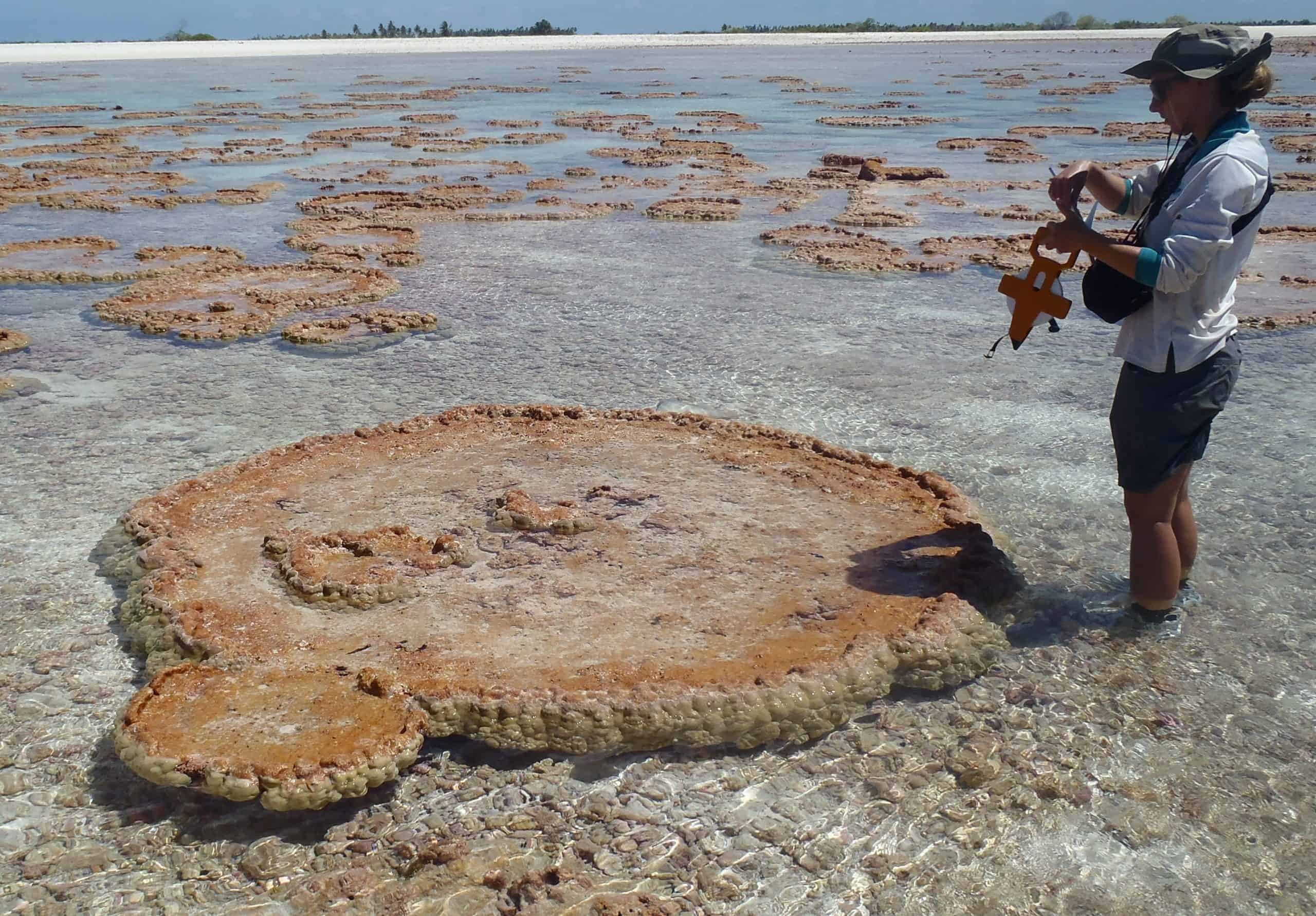
Q. Can you tell us a bit about the challenges of raising a young family while juggling academic work?
I’m doing the juggle at the moment, so I could go on and on…but I won’t. I have a three year old boy and a 10-month old girl. I think the biggest challenge for me has been switching off from work when I’m at ‘home’ – which has been made even more challenging given we’ve been working from home a lot more due to Covid. There are many positives though – I think becoming a parent encourages you to manage your work time more appropriately.
Q. What is your favourite bit of coastline in Aotearoa?
From a personal sense, it would have to be the Tutukaka Coast (Northland). I’ve holidayed at Matapouri beach since I was a baby, and now it’s so cool to be sharing that spot with my own children! But in a professional sense, I prefer more ‘wild’ coastlines that experience dramatic changes over time.
Q. What are your future aspirations?
I hope I can encourage more women and girls to engage with coastal science, and I hope to explore and conduct new approaches to engage the public in coastal science (particularly around the impacts of sea-level rise).
